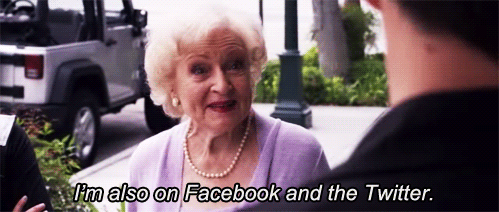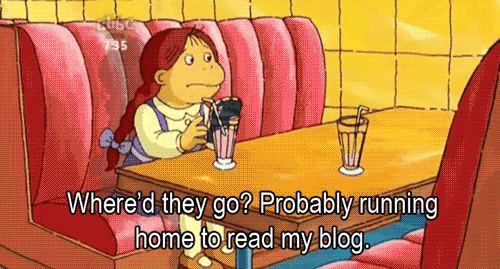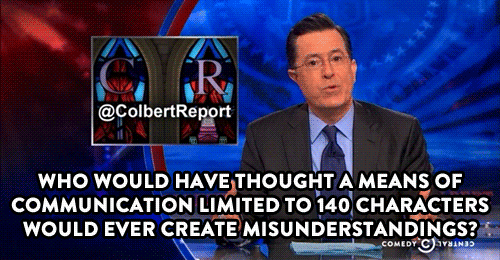Social media can play a significant role in an individual’s life, from Facebook to Twitter to Instagram and beyond. What many people fail to consider, however, is how their online presence can affect future job prospects and college application decisions. A Kaplan survey of college admissions officers revealed that 40% check up on their applicants via their social media pages. Of the officers who check up on students, 11% do so “often.” Nearly 30% of the admissions officers surveyed mentioned that they’ve Googled prospective students.
Simply having an online presence doesn’t mean that you’re at risk for rejection letters and being passed up for a job, but what is publicly displayed on your pages can harm you. It can also help you, depending on what you have shown. Consider the following situation:
A college admissions officer who often checks social media profiles is considering two candidates for one open position. Candidate A’s Facebook profile picture shows her in a bathing suit holding a bottle of something that looks suspiciously like beer. Candidate A is 18 years old. Candidate B’s Facebook profile picture shows her dressed up for a charity event with her date. Which student is more likely to receive the acceptance?
Facebook isn’t the only thing that shows up when colleges search for you online. For instance, when I Google my full name, I see my wedding website, a baby registry (which is most definitely not mine), my Twitter feed, and a pamphlet I wrote when I worked for the National Park Service. The first two photos that show up are of me, while the third is a butter dish. The internet works in mysterious ways.
What doesn’t show up is my Facebook page. That doesn’t mean it’s not there, especially if I bothered changing the search terms and instead put in my name and the word “Facebook.” But having other things that pop up first limits the likelihood that anyone is going to look any harder. You could think about creating a positive presence outside of the typical social media sites. Start a LinkedIn. If you’re a writer, start a blog. If you’re an artist, create a portfolio on Flickr. Your online presence doesn’t have to be limited to social media sites.
Sites that are devoted to social media, such as Facebook and Instagram, are traditionally the pages where young students, myself included, tend not to censor themselves. And you may think that it doesn’t matter. After all, the statistics show that there isn’t a high probability of college admissions counselors or prospective employers checking up on you. Even the majority that do admit to googling applicants don’t do so all the time. But what if you’re unlucky? On the off chance that you get one of the 4.4% of people who consistently check up on online presence, do you really want to take the risk of being turned down because of something stupid that you said or posted?
One quick way to determine what information, photos, and posts about or from you are readily available online is to google yourself. Type your full name, not just your first (since you probably share that with quite a few people), into any online search engine. If you find unflattering photos of yourself that you posted, you can easily remove them. If someone else posted them, things get trickier. If it’s from a friend, untag yourself or ask them to remove the offending image. Otherwise, you can contact Google directly.
There are other easy steps you can take to prevent undesirable photos, posts, tweets, and videos from appearing publicly. Take Facebook, for example, and consider doing the following:
- Double-check. Check your privacy settings on all social media sites.
- Change who can see what. Facebook has the option of allowing the “public,” “only friends,” or “only me” to see your posts.
- Don’t let things post automatically. You can also review posts and photos that you’ve been tagged in by other people before allowing them to post publicly on your wall.
- Deactivate. Your best bet is to allow only friends to see your page, but you can consider deactivating your account for the entire admissions period so that you can focus on what is important. You can always turn it back on later, after you have a place in your college class.
Twitter is similar in that you can choose to allow only your friends to see your tweets by protecting them. This means that if an admissions officer comes looking for your Twitter feed but isn’t connected with you, they won’t be able to see your posts. The downside is this: Tweets from before you changed your privacy settings may still be visible to the public.
Instagram works the same way. You can set all of your photos to private so that only your friends and followers who you’ve approved can see them. However, if your Instagram is linked to any other social media account, your photos may still be visible unless you’ve also altered the privacy settings on your other accounts. You can only change Instagram privacy settings from the application on your phone.
The bottom line is this:
- Don’t post photos of yourself doing anything illegal. If your social media accounts are checked in the admissions process, it is a surefire way to have your application rejected. Also, it’s illegal.
- Avoid posting anything that could be considered racist, sexist, or otherwise offensive. It may be wise to avoid politics as well.
- Keep your profile photos clean and keep your skin covered up. Your college admissions counselors don’t want to see you in a bathing suit, no matter how good your beach bod is this year.
- Don’t write anything negative about any of the colleges you’ve applied to. It’s okay to have a favorite, but you don’t want your second choice to see that it’s not your first choice and subsequently reject you out of spite. Your comments matter.
There are ways that your social media profiles can affect you positively too. If you are an up-and-coming musician but don’t have a way to audition for the admissions committee, you could consider directing them to your Youtube page. If you have photos of yourself doing community service, you may consider showing off an album on your Facebook page.
Of the admissions officers interviewed in the Kaplan study mentioned above, an equal percentage said that social media positively affected an admissions packet as said it negatively affected a decision. If you have something to showcase, by all means, ask the admissions committee to take a look. Remember, though, that once you’ve invited admissions officers in, they can see everything you allow them to. Take time to weed through old posts and photos to ensure that you are showcasing your best self.
-
Public Speaking: How to Use Your Voice to Climb to Success
-
Do Employers Look at More than Your Résumé and Transcripts?
-
Six Reasons Why a Student May Drop out of Medical School
-
Six Lessons You Will Learn after Losing Your Job
-
Choosing Electives with Purpose
-
Majors and Careers with Jobs in Any City
-
Five Tips for Writers: Personal Mistakes and Successes from YA Author Lara Hues
-
Eight Job Hunting Tips and Resources
-
Co-ops (Cooperative Educational Experiences) in College
-
A Mentor: How to Find One, Who to Ask, and What to Expect
-
How to Turn Your Internship into A Job Offer
-
Extreme Makeover: College Résumé Edition





